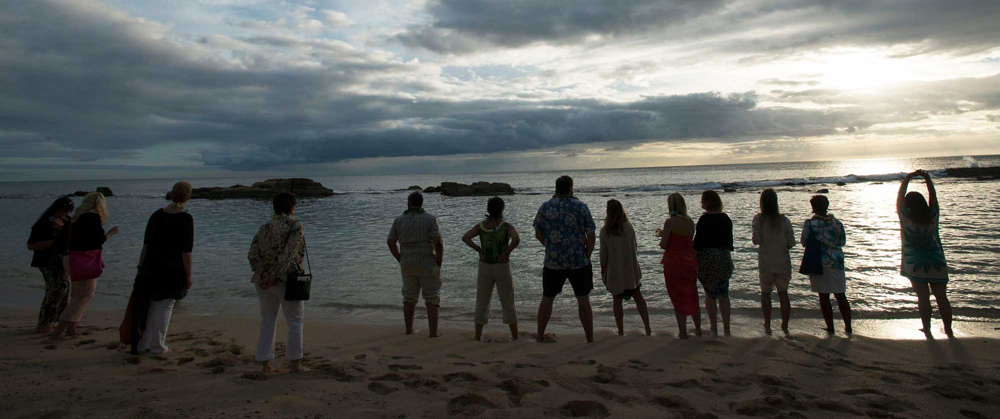Our Unique Response to Trauma
Our Healing [1] program area is a unique, yet much needed response—addressing the physical, emotional and spiritual effects of trauma, all in the nurturing environment of community. It encompasses both our programs for survivors [2] and our Heal the Healers program [3]. With the convening of our National Advisory Committee [4] and the groundbreaking action-research project the healing team has led with Georgetown University, this year marked a pivotal year for both—and has demonstrated to us how deeply intertwined they are.
Every day, we face the all too difficult reality that the need for our programs continually exceeds our internal capacity to offer them. One of the primary goals of our healing program has been to re-pilot and share our survivor programs as a replicable, evidence-informed treatment modality—in particular, our signature retreat program [5]—so that organizations throughout the country can serve survivors far beyond Joyful Heart’s own reach.
As FY14 began, the National Advisory Committee (NAC), a diverse group of experts from the fields of trauma and wellness came together to map our journey for the future of these programs. And what better place to do so than Joyful Heart’s birthplace, Hawai‘i.
Over the course of an intensive and emotional three days, the experts provided critical insight and concrete next steps around a concept we have long known: that to best serve survivors, those organizations and staff members must be caring for themselves first. And indeed, Joyful Heart’s survivor retreat program represents an elevated response to trauma, one that must be administered by skilled healers with an exceedingly high level of care, compassion and creativity.
As a result of this time together in Hawai‘i, Joyful Heart has formally integrated the Heal the Healers program as a key component of the retreat model. To ensure the successful replication and dissemination of the survivor retreat model, all healers administering the program must first gain an awareness and understanding of vicarious trauma [6] through Heal the Healers.

Next section: The Beginning of Replication [7] | Back to Table of Contents [8]
The Beginning of Retreat Replication
The re-piloting and replication of the retreat program formally began this year in Los Angeles. Joyful Heart partnered with four organizations in Southern California serving survivors of sexual assault, domestic violence and child abuse for these first stages: the Center for Community Solutions [9] in San Diego; and in Los Angeles, the YWCA [10], Peace Over Violence [11] and The Village Family Services [12]. And in April, as part of the larger retreat replication initiative, Joyful Heart held its first retreat program for 18 healers of these organizations in Ojai, California. At five days, it was the longest Heal the Healers retreat program Joyful Heart has ever held.
Throughout the five days, the healers participated in the retreat program that they will be referring survivors to in the future. Through creative expression, movement, yoga and journaling, the program addressed the physical, emotional and spiritual effects of both primary and secondary trauma that the healers experience. At all stages, researchers from Georgetown gathered qualitative and quantitative data to measure the effectiveness of the retreat and assess what makes the experience so transformational. Prior to their arrival, participants completed all measures for the pre-program data, or “baseline” collection. They included written questionnaires to measure various traits such as self-efficacy, perceived stress and self- compassion, as well as saliva samples from participants at five different points throughout the day, from which cortisol levels are being tested to determine stress levels. This biological marker in our study will greatly increase the strength and validity of the research. Participants also completed these measures one week after the retreat, at three months after and will complete them again at one year after. The Georgetown researchers are currently analyzing the results of these data.

“We are not only witnessing a dynamic change in the way trauma work is done, we are being part of that change toward a new, more holistic and effective way to treat trauma.”
- Dr. Mary Ann Dutton, Georgetown University
Providing Heal the Healers for these core partners will both support the practitioners doing frontline work and ensure that those implementing the model are ready to lead this type of deep, reflective programming for the survivors we serve. With this stage of the replication process completed, the healing team is currently preparing for the first re-piloted survivor retreat program, to take place in the coming fiscal year.
